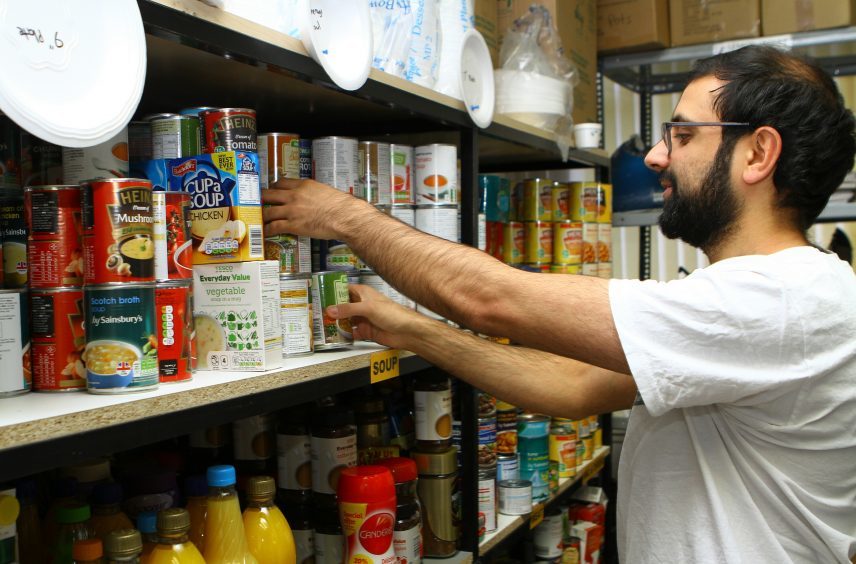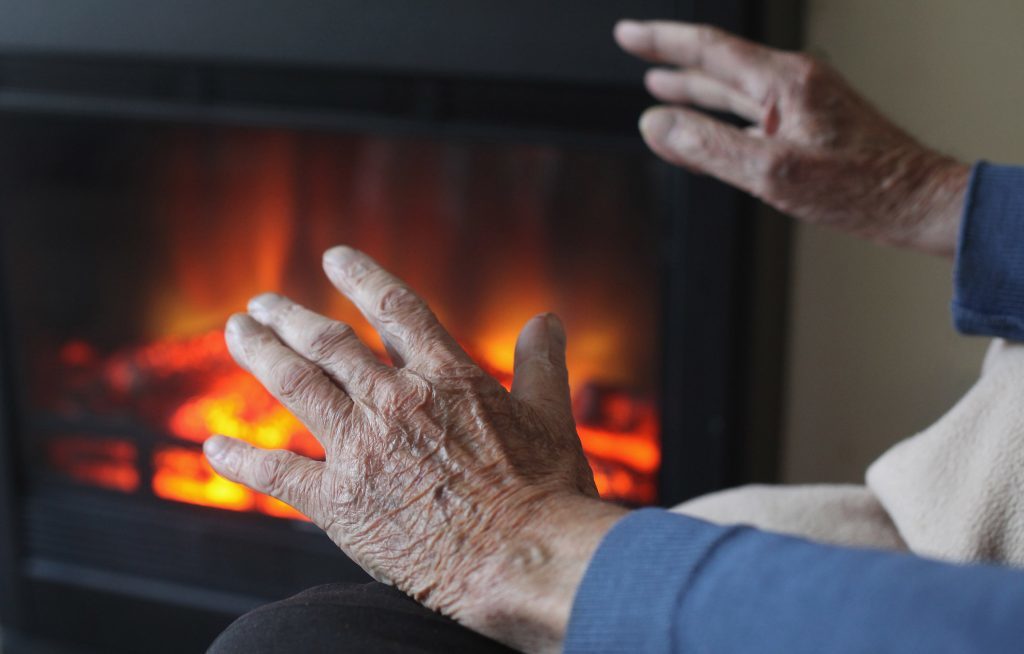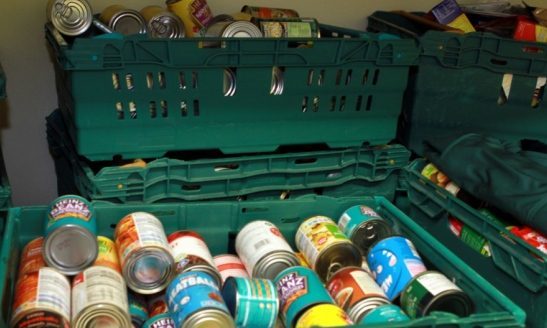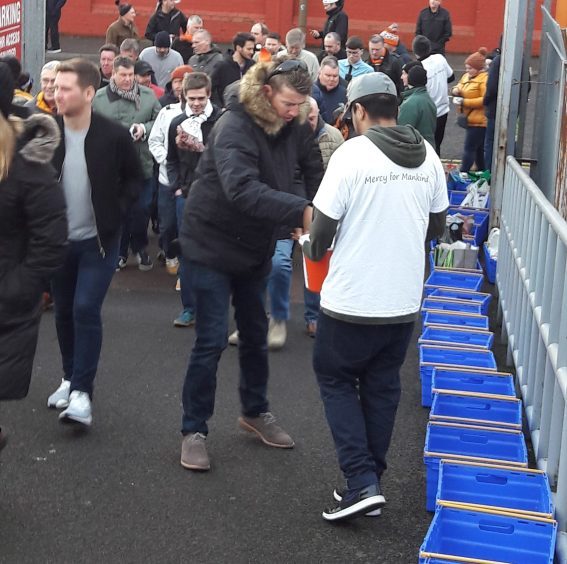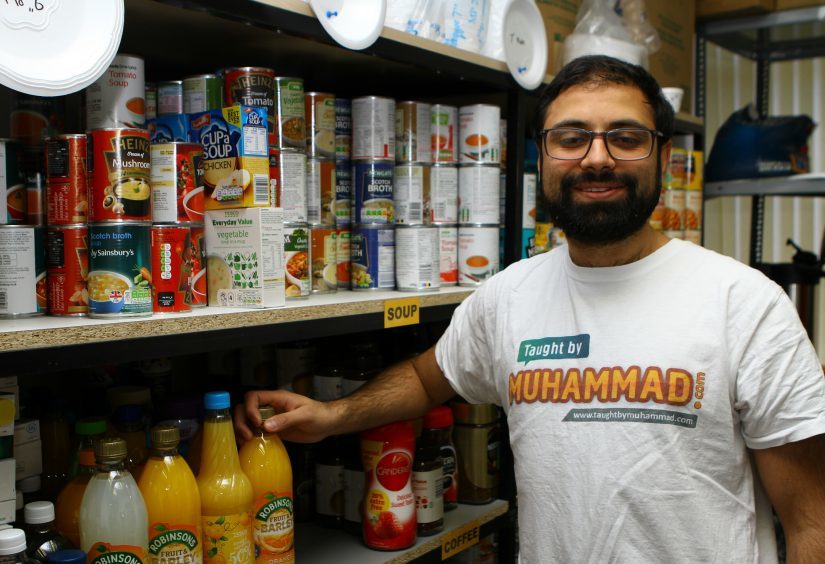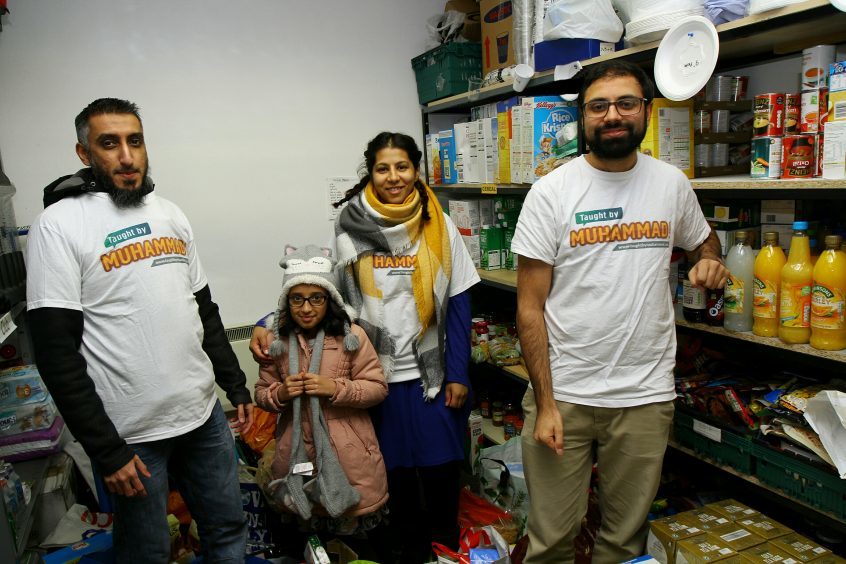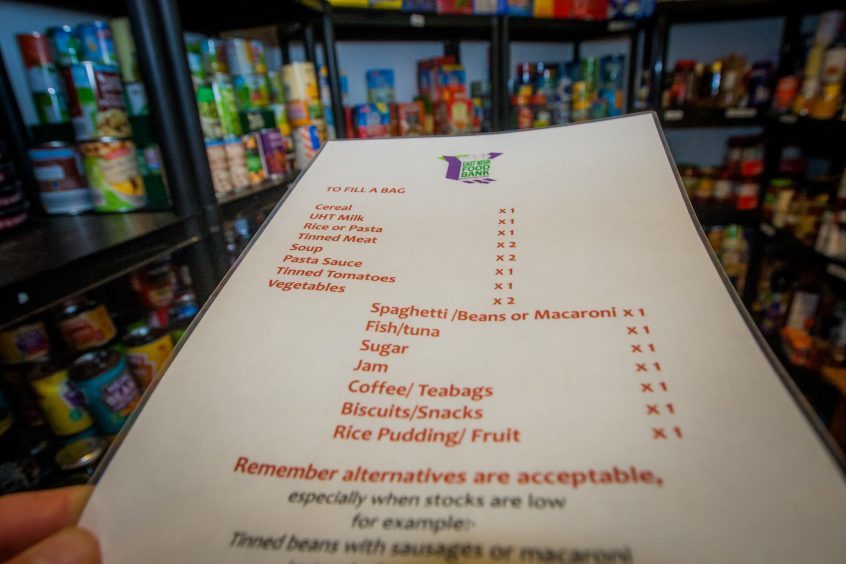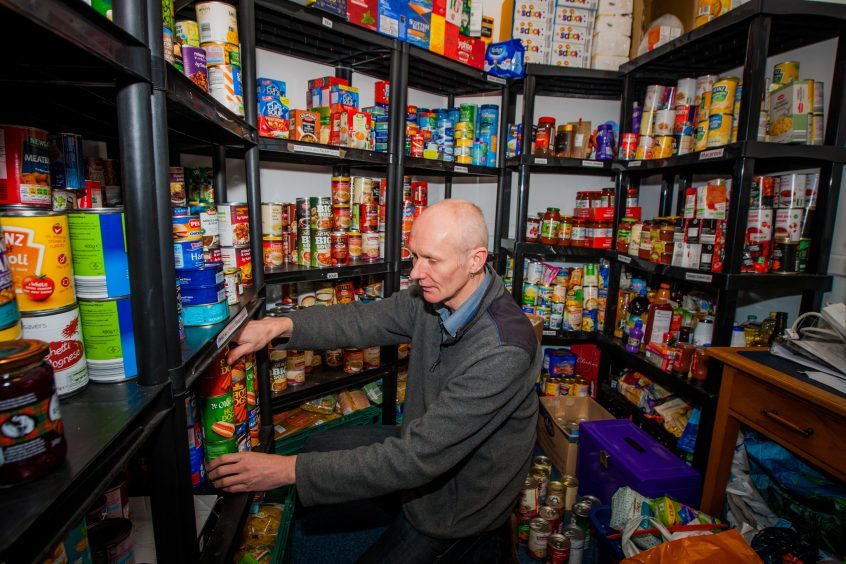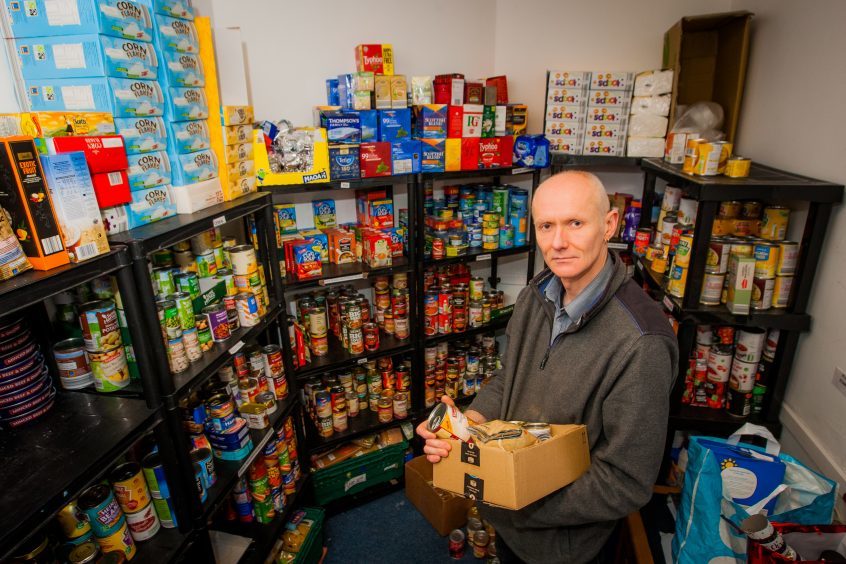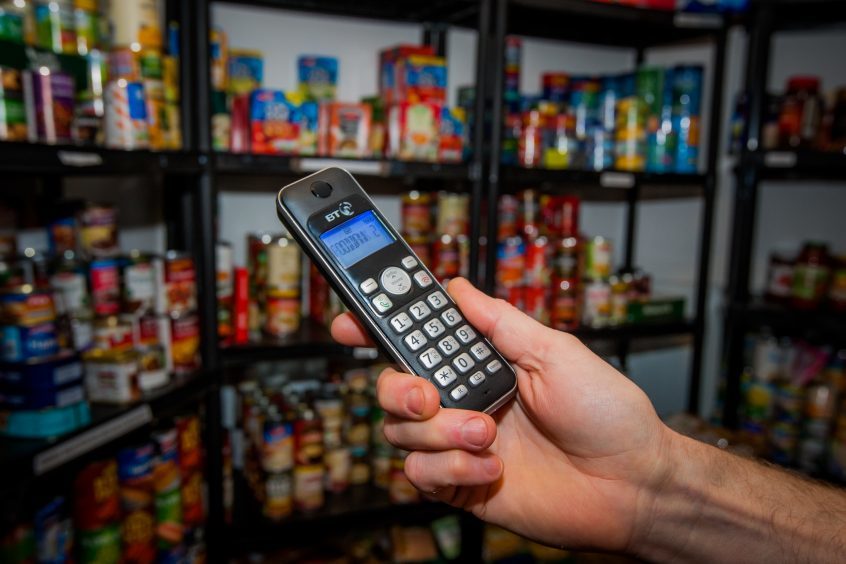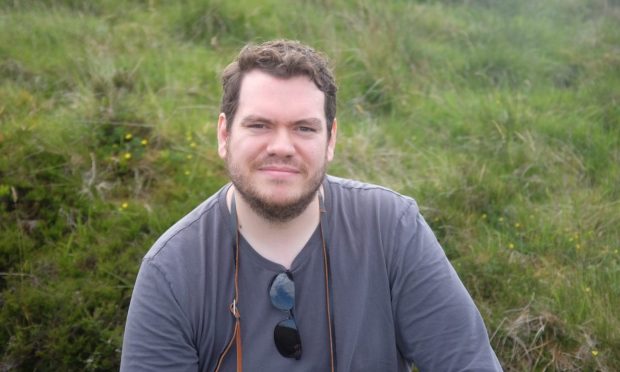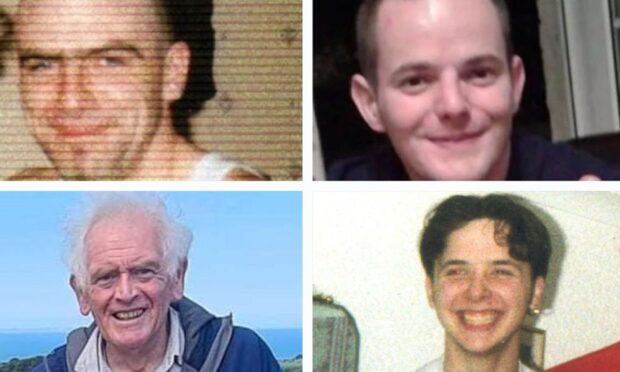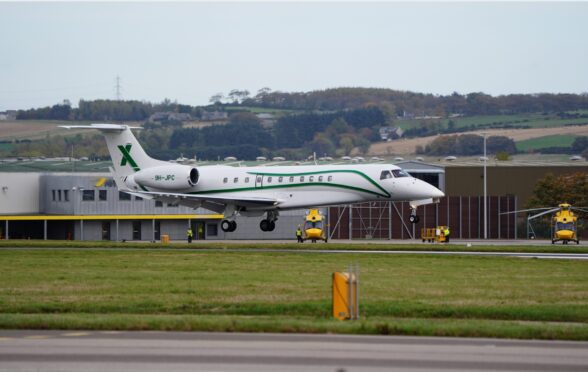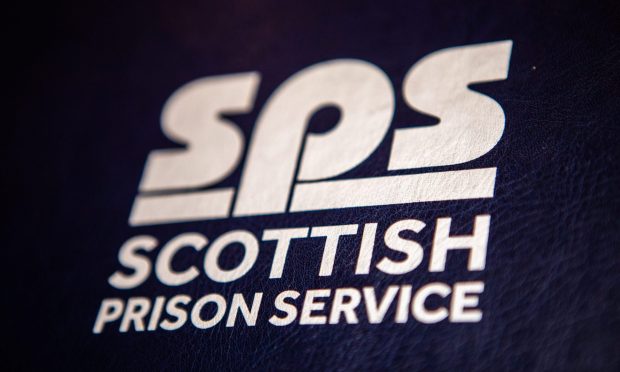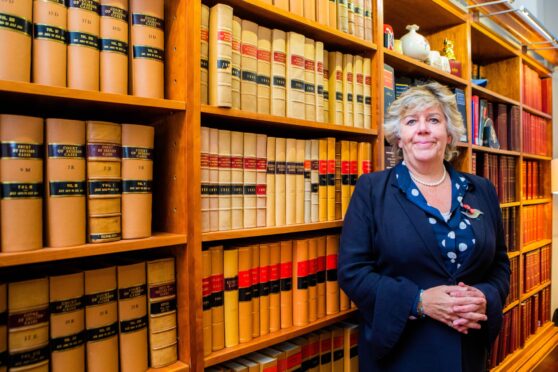As increasing numbers of poverty-stricken families turn to foodbanks over the festive period to put a meal on the table, Michael Alexander speaks to several foodbank volunteers in Tayside and Fife.
If there is a single word that describes what Christmas should be all about, it’s the little word ‘joy’.
Yet for thousands of people – with everyday living costs on the rise and so many seasonal spending pressures- it can also be a time when the cost of living simply becomes overwhelming.
Recent research shows that the average British consumer will have outspent their pay packet this Christmas and take four and half months to clear the debt.
Half will spend more than they earn; turning to savings or credit to pay for the festive season.
While six in 10 people had good intentions to set a budget for Christmas, over half of them didn’t believe they’d stick to it, with some even spending their entire year paying off the previous Christmas.
The data was part of the Nationwide Building Society’s new spending report which found that the average British consumer spends £564.68 on Christmas.
But with one fifth of the UK population officially below the poverty line all year round, what happens at Christmas if you are one of the low earning working people or unemployed who are dependent on foodbanks and struggle simply to make ends meet through no fault of your own?
What if government austerity cuts have taken their toll?
According to foodbank charity the Trussell Trust, which supports foodbanks across the country including Dundee, Perth and Glenrothes, there was a 48% increase in the number of Scots coming through their doors in December compared with the rest of the year.
It also found that thousands of low-income Scots weren’t able to afford basic “essentials” like soap and toothpaste this Christmas.
In its first survey into the non-food items distributed by foodbanks in Scotland the charity found that 90% of its foodbanks were now giving out nappies, feminine hygiene products, soap and shower gel as well as toothpaste on top of emergency food aid.
Last Saturday, Dundee Foodbank, in association with independent foodbank Taught By Muhammad, collected more than 625 kg of food donations from football fans ahead of the game between Dundee United and Livingston at Tannadice – and foodbanks were busy again on Wednesday after a couple of days being closed.
Michael Calder, stock coordinator of Dundee Foodbank said: “This year we face the added pressure of Universal Credit – since the new system kicked in last month, Dundee Foodbank has seen a marked increase in referrals putting great demand on our stock levels.”
Taught By Muhammad – an outreach project aimed at building understanding between Muslims and the wider Dundee community – has also reported an increase in demand over Christmas.
Its foodbank started in January 2014 with a group of volunteers committed to filling in gaps that may exist in the city with emergency food provision.
Working in consultation with agencies, the charity normally targets around 80 households per month who may not be able to make the journey to their nearest foodbank or those who may be too embarrassed to admit the situation they are in.
However, operations manager Rizwan Rafik confirmed that demand doubled to around 160 families over the festive period.
He said: “We are really busy with the amount of referrals over Christmas. It’s a mix of financial pressures but also at this time of year people have higher heating bills and many struggle.
“Many people have to choose between heating and eating. It’s great to see everyone working together regardless of their faith, background and race to help those in need within our community”.
East Neuk Foodbank, which is also dependent on local donations, is run independently at Anstruther parish church in Fife.
Since being established in April 2013, it has given out more than 4,900 food bags containing staples such as tinned meat, pasta and cereal – and will give out sanitary and other hygiene products on demand.
Part-time project co-ordinator Richard Wemyss, who has worked in the charity sector for over 30 years, said there has been no upsurge in demand so far this festive season.
He does, however, expect the impact of Universal Credit to be felt in the new year and expects demand to rise then.
“Rural poverty and isolation is a massive issue in the East Neuk which I think is often overlooked,” he said.
“People presume it’s a well off area but there’s no big employer, the fishing industry is all but gone, so the potential for peoples’ lives spiralling downhill is huge.
“We have a complete range of clientele including someone whose life fell apart after they were laid off from their £150,000 a year job on the rigs.
“Interestingly, the largest numbers of people using our foodbank now are aged over 45 with an even split between male and female.
“Often it’s because they’ve fallen on hard times through the break-up of a marriage or being thrown onto the scrapheap of unemployment.
“Probably the most important thing we have done here is put in a landline in broadband and landline in the church– I know of someone who racked up a £17.40 bill on their pay as you go mobile after being put on hold by the DWP.
“They got cut off and had their benefits stopped. So the landline is a simple but vital service. But so is our coffee area where people can simply come in and have a chat.”
